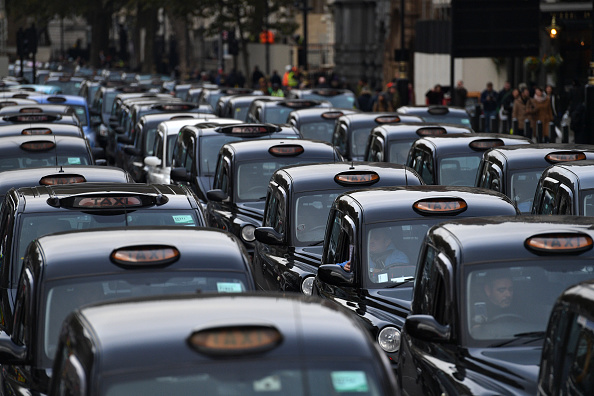London cabbies need to give up an antiquated system holding our economy back

Have you tried to get an Uber in central London recently, and, upon seeing the price just thought “may as well get a black cab”? At least that way, you skip the hassle of trying to find your designated Toyota Prius and can simply hail a driver from the street.
But the cost and expense of being a black cab driver prevents London from keeping a hold on a cost-effective transport system. Our city has kept moving, but the laws governing who can and can’t be a taxi driver in the capital has kept us stuck in the past. Our broken licensing systems pushes up costs and sends safety, affordability and, crucially, choice to the gutter.
One in five Londoners feel forced to own a car, according to research highlighted by Sian Berry, a Green London Assembly member. But with fuel, insurance and second-hand car prices skyrocketing, piling our collective assets into dedicated car services – whether that be black cabs or Bolts – will keep costs down in the capital.
Many in London are also looking for stable and lucrative income streams, but the driver labour market is so cloistered and inaccessible that many either don’t look to it – or turn to ride-sharing apps which don’t require the Knowledge test.
The test came about in 1865, requiring coach-drivers to memorise London’s winding alleys and streets. Necessary in the dark, squalid, and dangerous streets of Dickensian London, this test has fallen to the way-side in an age of mobile mapping and satellite navigation.
The current test takes roughly 4 years to complete and 1 in 5 drivers fail. It is an antiquated and expensive system shutting people out of the market that could benefit the entire capital. In Australia, a decentralised tax system brought a consumer surplus of £46.6m to the economy of the state of New South Wales, according to Deloitte. Imagine what that would look like if brought to the London economy.
It’s not to say the Knowledge should be destroyed. It has a valuable purpose in our cultural zeitgeist. But passing it should not be the pass or fail barrier it is to be a taxi driver in the capital. People don’t take a cab for their savviness on London’s streets, they take them because of the convenience – not to mention their access to the bus lanes.
Currently, London is beset with transport problems. Not only is the night-tube non-existent on most Underground routes, but taxis remain few and far between, with a 20 per cent reduction in licensed taxis across England in the past 10 years.
Meanwhile, the number of private hire vehicles grew by 40 per cent. There is a clear demand for cabs – just not black ones. These private hire vehicles are treated as second class by Transport for London, which has repeatedly revoked Uber’s licence over the last decade.
Our night-time economy is still struggling to recover from the shock of the pandemic. It only makes sense that making it easier for people to travel around the capital when the tube rattles to a close will help boost many of these businesses who rely on evening sojourns to central London.
Who should be governing our roads? And who should they be working for? They should be governed with consumers and our economy in mind, not clinging on to historical rules that, while valuable, don’t deliver value.
For all the latest Lifestyle News Click Here
For the latest news and updates, follow us on Google News.

